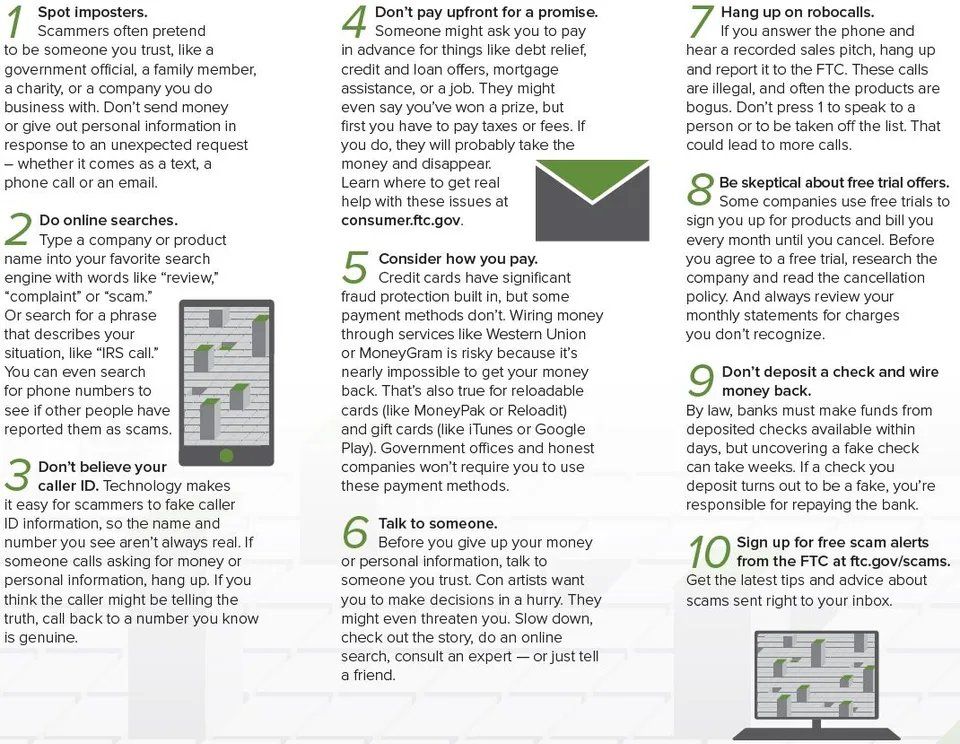CYBERCRIME REMINDER
Cybercriminals don't just send fraudulent email messages. They might call you on the telephone and claim to be from Kentland Bank.
The phone calls might even look like they come from Kentland Bank on your Caller ID, but they do not. There are numerous free software programs on the internet that allow scammers to “spoof” or fake the number they are calling from. Your Caller ID might show a call is coming from a trusted business, your bank or doctor, but it is not. It is a good idea to use a known number for the business and not the number that shows on your Caller ID. Look up the number in the phone book, off a statement, etc.
Cybercriminals might also setup infect trusted websites and display persistent pop-ups with fake warning messages and a phone number to call to get the “issue” fixed. They might offer to help solve your computer problems or sell you a software license. Once they have access to your computer, they can do the following:
• Trick you into installing malicious software that could capture sensitive data, such as online banking user names and passwords. They might also then charge you to remove this software.
• Convince you to visit legitimate websites and download software that will allow them to take control of your computer remotely and adjust settings to leave your computer vulnerable.
• Request credit card information so they can bill you for phony services.
• Direct you to fraudulent websites and ask you to enter credit card and other personal or financial information there.
CYBERCRIME REMINDER

ONLINE DATING SCAMS
Losses from Romance Scams Increased in 2019, FTC Finds
Consumers lost $201 million to romance scams in 2019, an increase of nearly 40% from a year prior, according to new data from the Federal Trade Commission’s Consumer Sentinel Network. The FTC received more than 25,000 reports about romance scams in 2019—nearly triple what the agency received in 2015.
The ABA Foundation and the FTC previously highlighted the common signs of romance scams in an infographic that banks are free to use to educate their customers. Such scams typically involve a fraudster creating a fake profile to lure in victims, establishing a romantic relationship and eventually extorting money from their victims, which frequently include older Americans.
In cases where an online romance scam is suspected, the ABA Foundation and the FTC recommend that consumers slow down and talk to someone they trust, never wire money or send cash in any way to an online love interest, contact their bank immediately if they feel they’ve sent money to a scammer and report the experience to the online dating site, the FTC and the FBI.
Here are a few helpful links to websites that will help you protect your personal information.
-
On Guard Online
-
Cyber Security Alerts
Learn about current security threats and what software releases are available to protect you.
-
FTC
Information from the Federal Trade Commission to help you avoid identity theft and learn what to do if your identity is stolen.
-
FDIC
-
CFPB - Senior Security
The Consumer Financial Protection Bureau's Office of Older Americans provides information and tools to help seniors navigate safely through life's financial challenges.
To report a lost or stolen debit card after business hours, please call (888) 297-3416
For credit cards, please call (800) 367-7576
REMEMBER: Kentland Bank will never call, text, or email you for your account information. If you get one of these, it is a scam. Please just hang up the phone, delete the text or email and don’t give them any information. Kentland Bank does not sell or solicit non-financial products. Contact one of our branches if you have any questions. Or, visit our Protect Yourself page to learn more about Cyber Crime.






